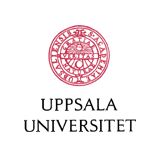|
Utility as a User Selection Criterion for
Coordinated Multi-point Systems.
Annika Klockar
, Karlstad University,
Carmen Botella
, Universitat de Valencia
Mikael Sternad
, Uppsala University
Anna Brunström
, Karlstad University, and
Tommy Svensson
, Chalmers.
IEEE Conference on Personal, Indoor and Mobile
Radio Communications, PIMRC,
September 2013, London.
© 2013 IEEE
-
Abstract:
-
Coordinated multipoint (CoMP) transmission and
reception techniques have been proposed to combat inter-cell
interference in cellular systems and, hence, to increase the data
rates.
Due to the overhead introduced, not all users may be
served with CoMP. In this paper, we focus on how to select
users for joint processing CoMP under limited backhaul capacity.
The evaluated user selection schemes take user experience into
account, quantified by the utility of Internet application types.
We
propose a heuristic algorithm utility based user selection that has
low computational complexity. Utility based user selection and
maximize utility, which maximizes the sum utilities, are compared
to maximize rate, which maximizes the sum data rates.
A range
of traffic mixes and user locations are evaluated. The simulation
results indicate that resources required for CoMP are more
efficiently used if the user selection is based on utility rather
than on maximizing the total data rate. If utility is taken into
account a higher total utility can in many cases be achieved for
the same limited backhaul capacity.
-
Related publications:
-
IEEE ISWCS 2014:
User-centric pre-selection and scheduling for CoMP.
-
Measurement-Based Evaluation of Robust Linear Precoding
for Downlink CoMP (IEEE ICC 2012).
-
Utility of Joint Processing Schemes, ISWCS 2010.
-
Source:
-
Pdf
|
Main
entry in list of publications
|
4G and 5G wireless research
|
This material is posted here with permission of the IEEE.
Such permission of the IEEE does not in any
way imply IEEE endorsement of any of Uppsala University's
products or services.
Internal or personal use of this material is permitted.
However, permission to reprint/republish this material for
advertising or promotional purposes or for creating new collective
works for resale or redistribution must be obtained
from the IEEE by writing to pubs-permissions@ieee.org.
By choosing to view this document, you agree to all
provisions of the copyright laws protecting it.
|

